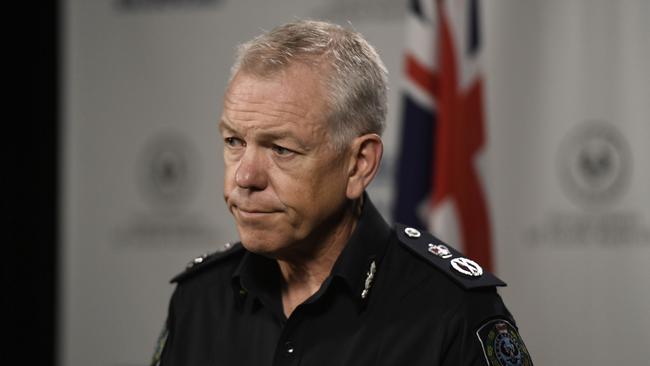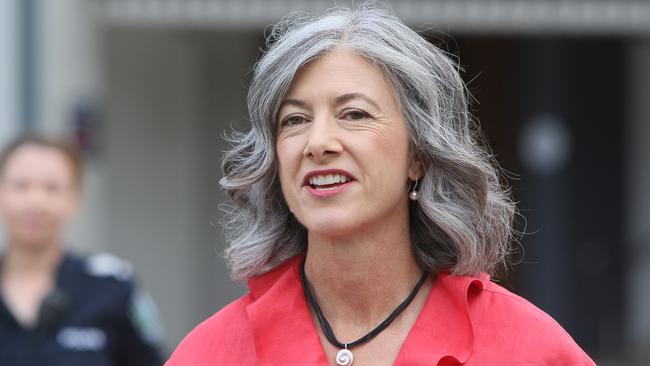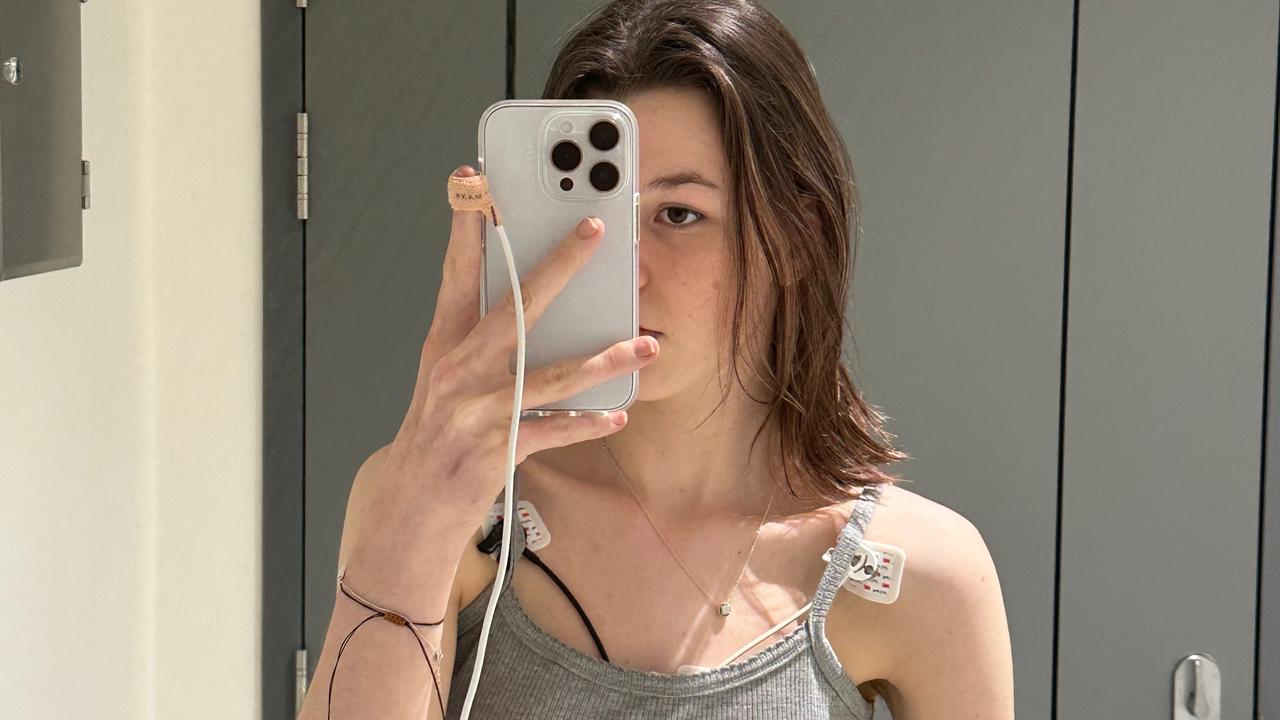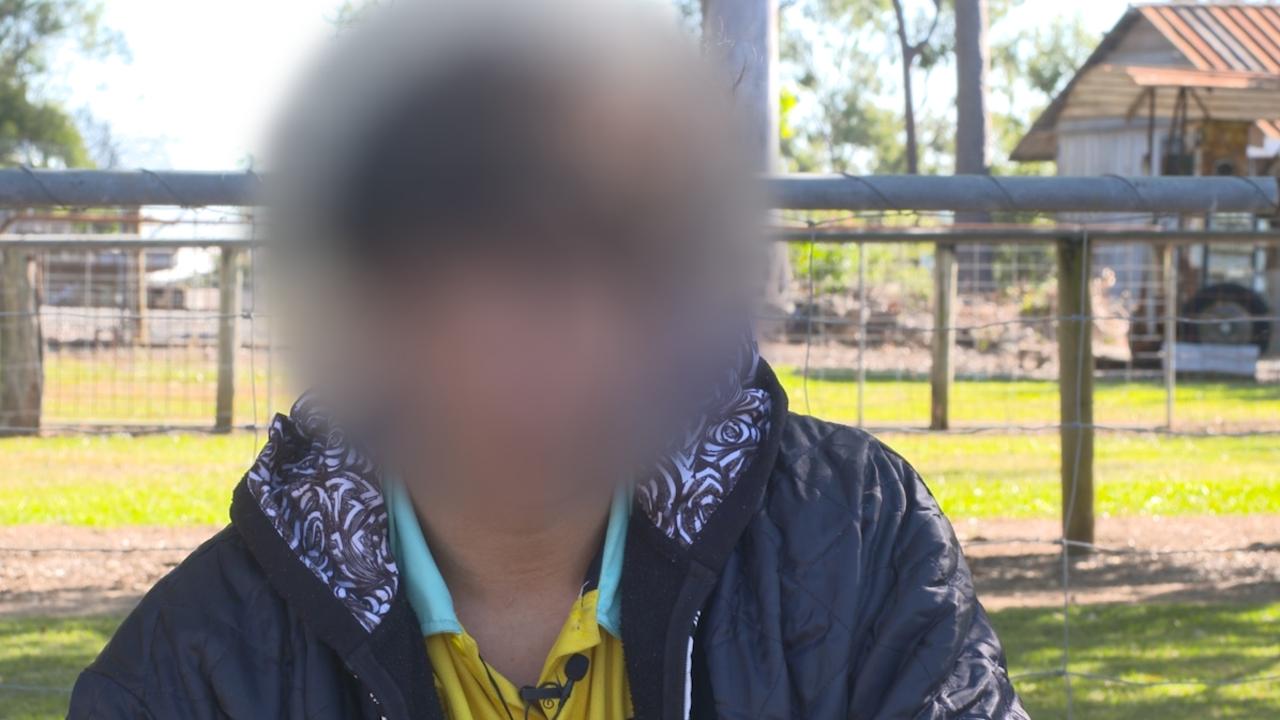Poll shows more than half of South Australians ignoring QR rules
South Australians have been warned their low-level COVID bans could harden if QR scan-ins continue to be ignored.
Coronavirus
Don't miss out on the headlines from Coronavirus. Followed categories will be added to My News.
A majority of South Australians are failing to use COVID-19 QR codes that authorities require to help coronavirus contact tracing, an exclusive Advertiser opinion poll has found.
YouGov pollsters found fewer than half of respondents said they always used the special identification-tracking technology, which is legally mandatory for businesses, when available.
The statewide findings, conducted three months after launching, showed almost a third use it “most of the time” while one in 10 either use check in half of the time or only if supervising staff would otherwise refuse entry.
Police Commissioner Grant Stevens warned usage of the government black and white barcode system was “insufficient” and may influence the relatively low level of legally-enforced bans.
As the transition committee prepares to meet tomorrow, the state’s top cop warned that while it was “foreign to us” to use the system, “it is for a reason” and only during the pandemic.

“The obligation rests with businesses and venues to ensure patrons have ready access to the QR codes as they enter and patrons are obliged to use it,” said Mr Stevens, who authorises legal directions as state COVID co-ordinator.
“QR codes are a critical element of our COVID response and their use will help mitigate the need for more stringent restrictions.
“The information collected will be pivotal in getting on top of an outbreak should it occur in SA.
“I appreciate the fact that QR ‘check in’ is a minor inconvenience and not always easily remembered but it will only be truly effective if we all do our bit.”
The state ushered in a new era on December 1 last year when the identification checks became mandatory for businesses, and public gatherings, to help authorities track at-risk patrons in another outbreak.
Authorities warn all people “entering a business, place (or) activity” with a COVID Safe Check-In QR code “must ensure” they scan in, or provide details on paper records, upon entry or shortly after,
Official rules state that anyone who refuses to provide details may be banned from entering or fined up to $1060.
According to the poll of 843 people taken between February 24 and Monday last week, women are more likely than men to use QR scanners despite having a lower level of intention to get vaccinated against COVID.
The research found 83 per cent of women say they use them most of the time compared with 75 per cent of men.
Adelaide residents appear less conscientious as 47 per cent of those in city areas revealed they use them all the time, compared with 54 per cent in regional SA.
A small proportion, totalling 12 per cent of respondents, either don’t carry a smartphone (7 per cent), avoid places that require its use (3 per cent) or manually record false names and details.

Calling for more use, chief public health officer, Professor Nicola Spurrier, said QR codes were the “most important tool” to combat a virus threat that “remains a real risk”.
“If someone in South Australia tests positive to COVID-19, COVID… check-in enables us to quickly contact others who may have been exposed to the virus, controlling the spread,” she said.
“With returning travellers from overseas and higher rates of COVID-19 in other countries, there remains a real risk of COVID-19 to the South Australian community.
“The QR technology has greatly enhanced our local contact tracing capabilities and further keeps our community COVID safe.”
More than 94.9 million check ins have occurred by 1.4 million unique mobile numbers at almost 52,500 locations since its introduction, according to the latest figures from the Department of Premier and Cabinet.
The department, which stores the encrypted data for SA Health contact tracers, has deleted 62.4m records as all data is wiped every 28 days under state law.
Over the weekend, police conducted 223 business compliance checks and eight were found to be non-compliant recording a total of 10 individual breaches, including three for QR codes.
Only two penalities were recorded, with education provided to all businesses found to be non-compliant.



